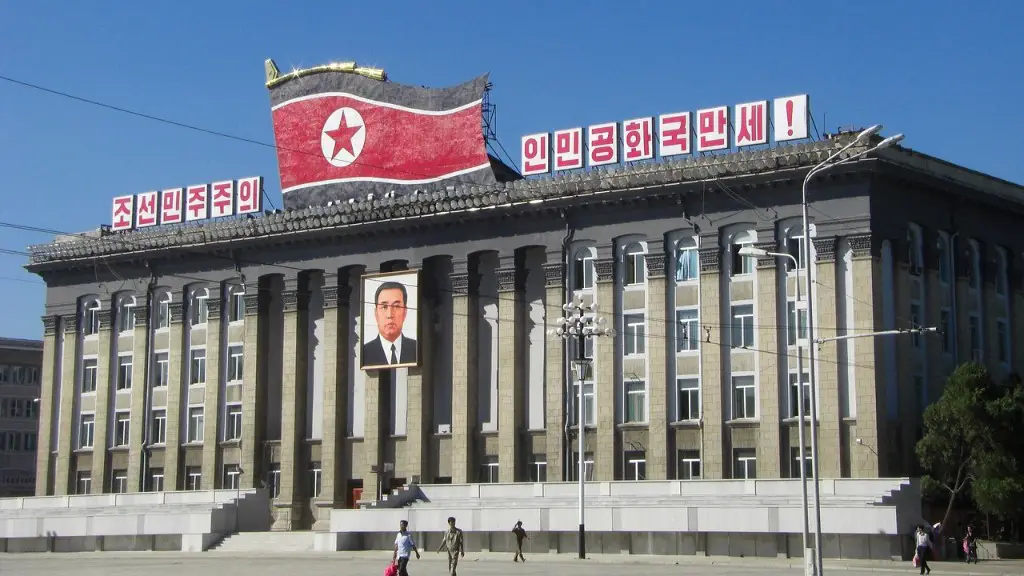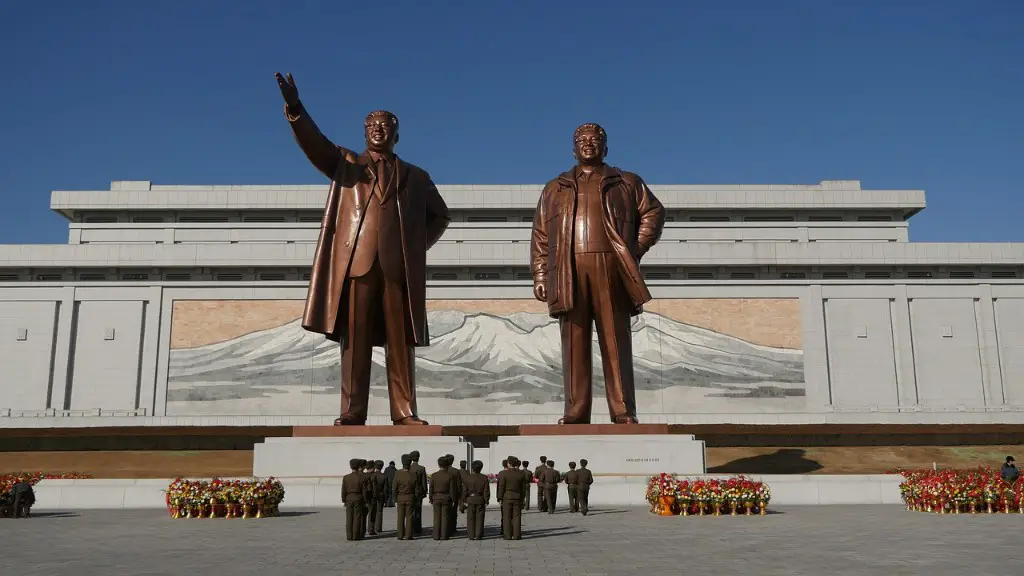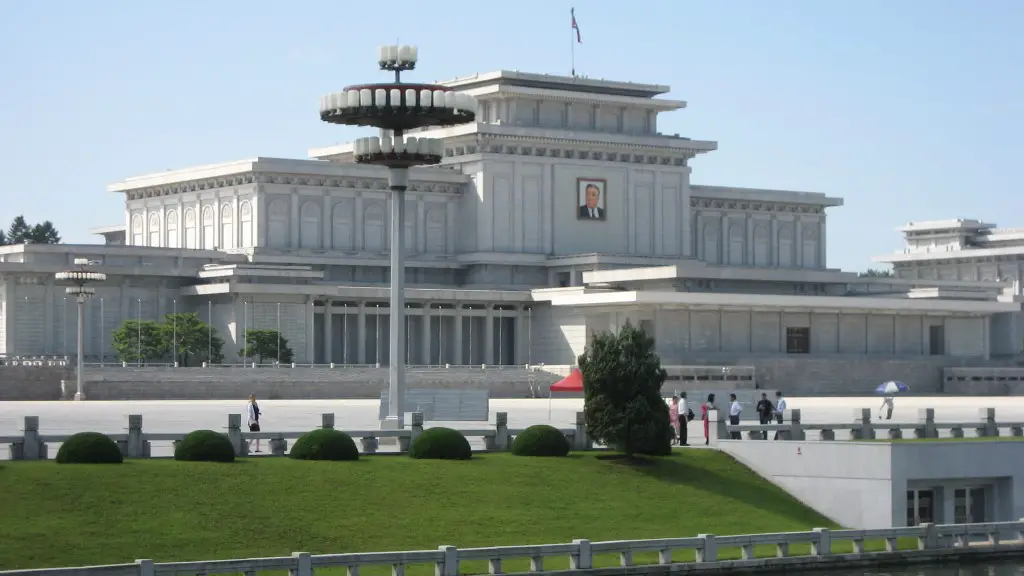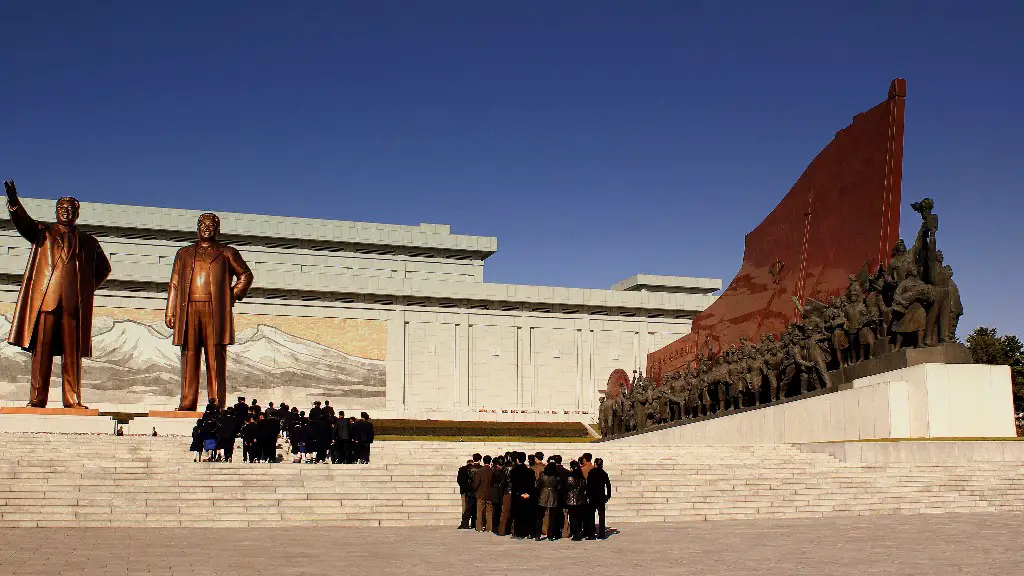The government of North Korea is a Socialist state which emerged in the aftermath of the Second World War. The country is currently ruled by the Workers’ Party of Korea (WPK), which singly holds executive and legislative authority. Under the WPK regime, North Korea is a one-party state with a publicly owned economy and a highly centralized government.
The Democratic People’s Republic of Korea, or North Korea, is a socialist state that is currently ruled by the Workers’ Party of Korea. The government type of North Korea is therefore a socialist state.
What type of government is North Korea under?
The Democratic People’s Republic of Korea (DPRK or North Korea) is an authoritarian state led by the Kim family for 70 years. Shortly after Kim Jong Il’s death in late 2011, his son Kim Jong Un was named marshal of the DPRK and supreme commander of the Korean People’s Army. The government controls all media and information within the country, and citizens are not allowed to freely express their opinions. North Korea is one of the most isolated and secretive countries in the world, and its human rights record is considered among the worst.
The North Korean political system is based on the principle of centralization. The constitution defines North Korea as “a dictatorship of people’s democracy” under the leadership of the Workers’ Party of Korea (WPK), which is given legal supremacy over other political parties. The WPK controls all aspects of the government and society, and the government is highly centralized. The North Korean government is not democratically elected, and there is no freedom of speech or assembly. North Korea is a dictatorship, and the WPK is the only party that is allowed to rule.
Is North Korea Democratic or communism
Since the Soviet Union dissolved in 1991, North Korea has been without economic aid. They have been unable to uphold Communism and have replaced it with a new ideology.
North Korea’s aim to militarily conquer South Korea and unify the two Koreas under a communist North Korean regime has been a source of tension on the Korean Peninsula for decades. While the North has never been successful in its attempts to conquer the South, its continued aggression has kept the two Koreas in a state of constant conflict.
Is Korea a democratic country?
The Economist Intelligence Unit’s “Democracy Index” rates South Korea as a “full democracy” in 2022. This is based on a number of factors, including freedom of expression, freedom of association, and the rule of law. South Korea has made significant progress in these areas in recent years, and the EIU expects this trend to continue.
In North Korea, the constitution guarantees the freedoms of speech and assembly, but in practice, other clauses take precedence, including the requirement that citizens follow a socialist way of life. This means that people are not free to express themselves freely or to assemble peacefully in North Korea.
When did North Korea became communist?
The UN’s declaration in 1948 that the Republic of Korea was the “only lawful government in Korea” was a major factor in the country’s eventual split into North and South Korea. By 1949, North Korea had become a full-fledged Communist state, while South Korea remained democratic. The UN’s decision helped to fuel the division of the Korean peninsula.
Significant human rights issues included: unlawful or arbitrary killings by the government; forced disappearances by the government; torture and cruel, inhuman, and degrading treatment and punishment by government authorities; harsh and life-threatening prison conditions, including in political prison camps; arbitrary arrest and detention, particularly of those with dissenting political views; repression of civil society, journalists, and international media; and restrictions on freedoms of assembly, association, religion, and movement.
What crimes are punishable by death in North Korea
The death penalty is a legal penalty in North Korea. It is used for many offences such as grand theft, murder, rape, drug smuggling, treason, espionage, political dissidence, defection, piracy, consumption of media not approved by the government and proselytizing religious beliefs that contradict practiced Juche ideology.
Marxist-Leninist states are those that follow the ideology of Marxism-Leninism, which was first put forth by Karl Marx and Vladimir Lenin. These states typically have a single-party system with a communist party in power, and they maintain strict control over the media and other means of communication. Economic planning is also an important part of Marxist-Leninist ideology, and these states typically have centrally-planned economies.
What countries are communist?
Generally, communist states are those that are governed by a single party that follows the ideology of Marxism-Leninism. These states often do not claim to have achieved socialism or communism in their countries but to be building and working toward the establishment of socialism in their countries. The existing communist states in the world today are China, Cuba, Laos, Vietnam, and North Korea (DPRK).
There are a few key differences between communism and socialism. First, under communism, most property and economic resources are owned and controlled by the state. In socialism, these resources are shared equally among all citizens. Second, socialism is typically a democracy, while communism is usually a dictatorship. Finally, communists believe in class warfare, while socialists believe in working together for the common good.
Is North Korea a capitalist country
The North Korean economy is centrally planned, meaning that the government rather than the market determines what goods and services are produced, and how they are distributed. This system was first developed under the Juche ideology, which prioritized self-reliance, and continues to be the guiding principle of the North Korean economy. While the role of market allocation schemes has increased in recent years, the government still plays a very large role in the economy.
According to Article 1 of the state constitution, North Korea is an “independent socialist state.” It holds elections, though they have been described by independent observers as sham elections, as North Korea is a totalitarian dictatorship with a comprehensive cult of personality around the Kim family. North Korea does not allow freedom of the press, and its citizens do not have access to the Internet. North Koreans are not allowed to leave the country without the permission of the government, and the government severely punishes anyone who attempts to do so.
Is South Korea Socialist or democratic?
South Korea’s “legitimate” socialist movement is considered part of South Korean progressivism. The movement started in the early 1900s as a response to growing Korean nationalism and the rise of imperial Japan. It was initially led by intellectuals and students who were influenced by Leninism and Marxism. After World War II, the movement became more organized and focused on achieving social and economic justice for working-class Koreans. In the 1950s and 1960s, the movement was repressed by the military dictatorship, but it continued to grow in strength and popularity. Today, the socialist movement in South Korea is represented by a number of political parties and groups that are dedicated to fighting for the rights of workers and the poor.
The Political Stability Index is a measure of how stable a country is. A high score indicates a stable country, while a low score indicates an unstable country. South Korea’s score has been relatively high over the past few years, meaning it is a relatively stable country. However, the score has been declining somewhat in recent years, indicating that political stability may be weakening.
Final Words
North Korea is a communist state, and as such, its government type is communist.
The government type of North Korea is a one-party state with a totalitarian dictatorship. The country is isolated from the rest of the world and its citizens are not allowed to travel outside of North Korea. The government controls all aspects of its citizens’ lives, including what they read, watch, and say.





